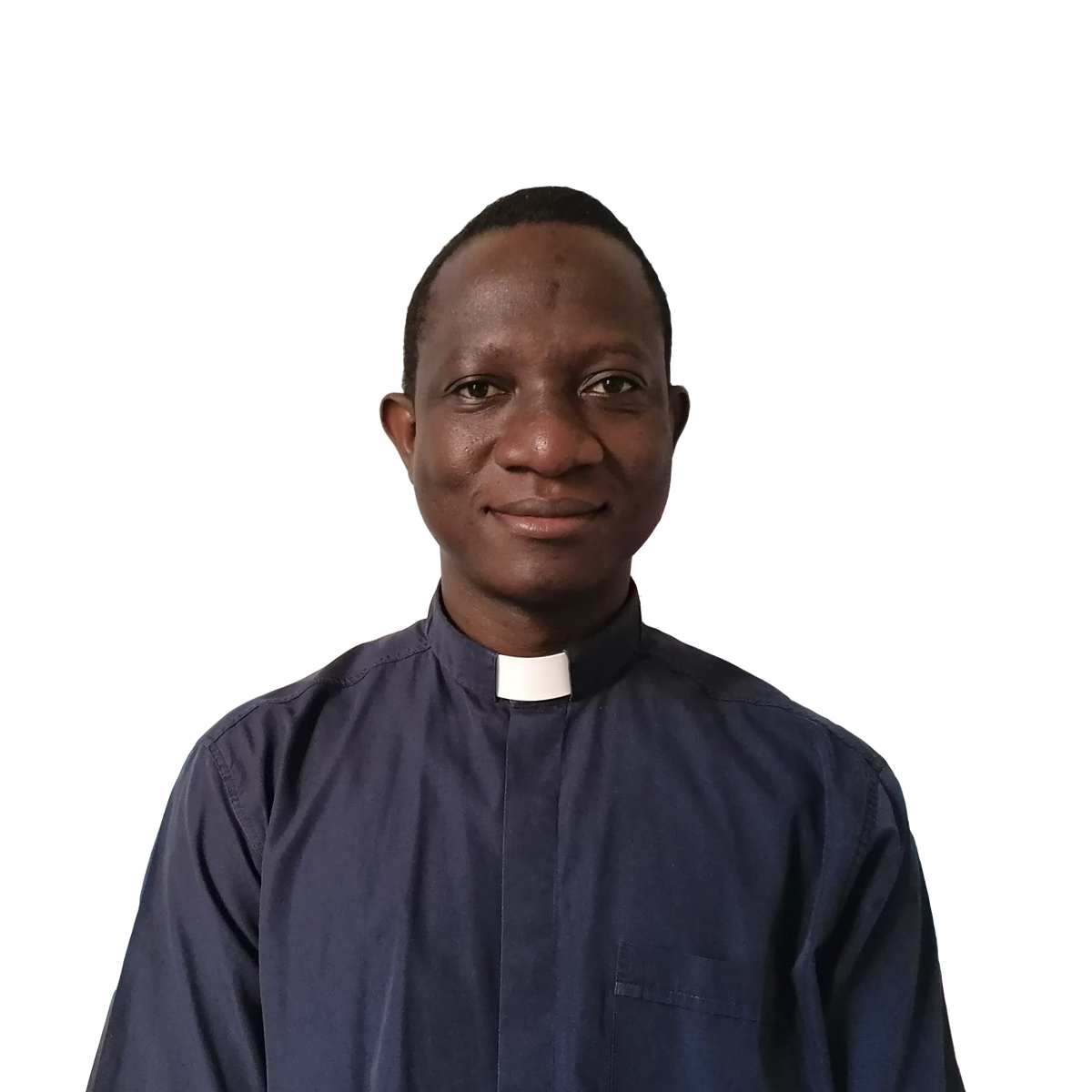
Antoine Tiaboundou is a priest of the diocese of Fada N'gourma, a city located in the eastern part of Burkina Faso, 219 kilometers east of Ouagadougou, the capital. Fada N'gourma is an important city, as it is well known for the production of blankets and carpets, as well as for its honey.
""I was born into a family of seven children. I had the happiness of being born and growing up in a Catholic family. My father (deceased) was a catechist. In my country, the catechist is a very important ministry, an extraordinary ministry instituted in the Church of Burkina Faso since the beginning of evangelization. With my mother, they were trained for four years and were sent by the parish priest successively to several villages where my father had to teach and prepare the catechumens for the reception of the sacraments of Christian initiation and marriage.
The figure of the catechist is important in this regard because it ensures the permanence of the Church in remote places where the priest, often in great demand, comes only a few times to visit the communities and offer them the sacraments. Every Sunday, the catechist gathers the community and, when there can be no mass due to lack of priests, he presides the Sunday community prayer.
This celebration is composed of listening to the Word of God on Sunday, followed by a time of sharing, and a common prayer for the intentions of the community and the Church. Sometimes the catechist, who presides, distributes Communion to the faithful. After this celebration, he dispenses catechesis and visits the sick.
Ultimately, the catechist is in charge of the people of his community, as he guides and encourages them in the proclamation of the Gospel and in the experience of faith while waiting for the priest.
So it was in this context that I lived my childhood. And it was in these circumstances that I had the desire to become a priest from the age of five. I saw how much my village lacked and how much it wanted to have a priest always present... And my very desire to serve the people was born from my contact with a Redemptorist priest of French origin who often came to celebrate Sunday Mass for the village community. I still have a very vivid memory of him in my heart: I remember his simplicity, his closeness to my father and his ease of dialogue with young Christians, with traditional leaders and with believers of the Muslim religion, because in my country there are all kinds of people!
It was this same priest who had the pleasure of presenting my file to enter the minor seminary of St. Augustine of Baskouré, in the archdiocese of Koupéla, in September 1993, where I continued my formation for eight years until I obtained my Bachelor of Arts degree in 2001.
After the minor seminary, I studied philosophy and theology for seven years, until I was ordained a priest on December 6, 2008 on the occasion of the celebration of the golden jubilee of the creation of my original parish, Piela.
After six years of priestly ministry in the diocese, my bishop wanted to send me to Rome for three years of studies in Social and Institutional Communication at the Pontifical University of the Holy Cross from 2014 to 2017, thanks to a study grant.
In fact, it has been a sacrifice for the diocese that I was abroad for my formation, because, as I said before, there is a lack of priests, but it is very necessary not only to have good and holy priests, but also that they are well trained for the task of evangelization, especially through the media, so important nowadays.
Therefore, after obtaining my Bachelor's Degree in June 2017, I returned to the diocese to deal mainly with Catholic schools and, among other things, Radio Taanba, a diocesan radio station."
"As of September 2020, I am back on a study mission for the doctoral cycle at the same university. The bishop decided to have me return to obtain the doctorate since he realized how important is the work that can be done in the diocese after having the opportunity to be formed in a university of excellence such as the Pontifical University of the Holy Cross. That is why, after obtaining another scholarship, I returned to Rome, albeit at a very delicate time like the pandemic.
In fact, getting a scholarship at this time when COVID is hitting humanity hard was a real and tangible opportunity that God and you, my benefactors gave me to better serve the Church in my diocese and, with God's grace, to encourage other boys like me, following the example of my father and the Redemptorist priest who had such an influence on me, to consecrate their lives in the service of the Lord.
I am happy to count on your support, which I know you take care of me not only in a material way but also through your prayers.
The gift of faith, then, is the most important thing we have. I always thank God for this wonderful gift. I see my priesthood as a continuation of my father's witness to the faith in the heart of small, simple and poor village communities. For me, being a priest means loving Jesus, making him known, sharing the joy of knowing him with our brothers so that humanity may grow in dialogue, peace and fraternity.
I am also convinced that this very important specialization that I am doing in Social and Institutional Communication undoubtedly offers me tools to better communicate the faith in the Church and in the world, and in particular in my small country in Africa.
The small and large gestures that are made in life make life itself, our own and that of others, flourish again. Gratitude is life, life is gratitude. God bless you always."".